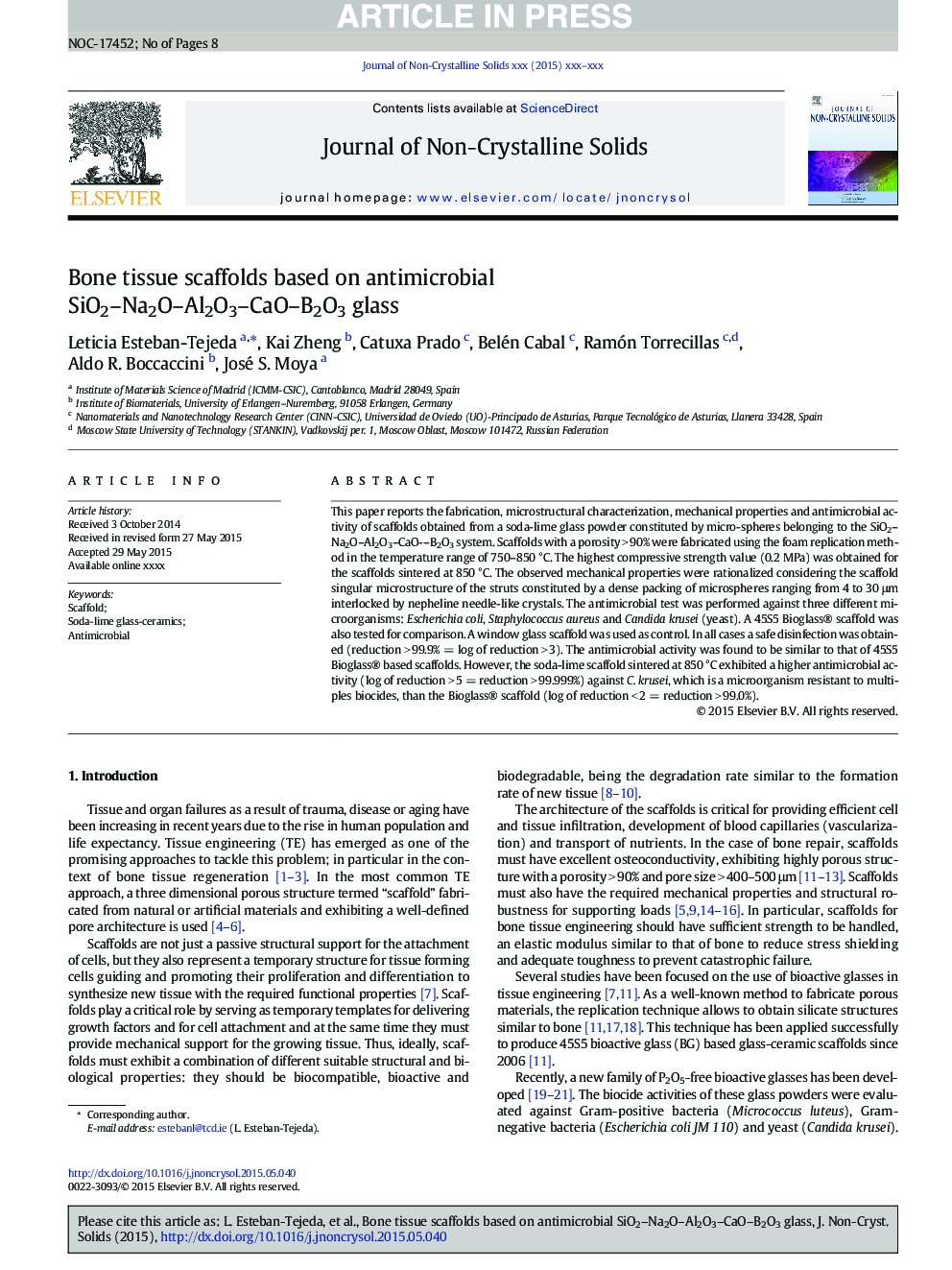| Article ID | Journal | Published Year | Pages | File Type |
|---|---|---|---|---|
| 10630945 | Journal of Non-Crystalline Solids | 2016 | 8 Pages |
Abstract
This paper reports the fabrication, microstructural characterization, mechanical properties and antimicrobial activity of scaffolds obtained from a soda-lime glass powder constituted by micro-spheres belonging to the SiO2-Na2O-Al2O3-CaO--B2O3 system. Scaffolds with a porosity > 90% were fabricated using the foam replication method in the temperature range of 750-850 °C. The highest compressive strength value (0.2 MPa) was obtained for the scaffolds sintered at 850 °C. The observed mechanical properties were rationalized considering the scaffold singular microstructure of the struts constituted by a dense packing of microspheres ranging from 4 to 30 μm interlocked by nepheline needle-like crystals. The antimicrobial test was performed against three different microorganisms: Escherichia coli, Staphylococcus aureus and Candida krusei (yeast). A 45S5 Bioglass® scaffold was also tested for comparison. A window glass scaffold was used as control. In all cases a safe disinfection was obtained (reduction > 99.9% = log of reduction > 3). The antimicrobial activity was found to be similar to that of 45S5 Bioglass® based scaffolds. However, the soda-lime scaffold sintered at 850 °C exhibited a higher antimicrobial activity (log of reduction > 5 = reduction > 99.999%) against C. krusei, which is a microorganism resistant to multiples biocides, than the Bioglass® scaffold (log of reduction < 2 = reduction > 99.0%).
Keywords
Related Topics
Physical Sciences and Engineering
Materials Science
Ceramics and Composites
Authors
Leticia Esteban-Tejeda, Kai Zheng, Catuxa Prado, Belén Cabal, Ramón Torrecillas, Aldo R. Boccaccini, José S. Moya,
